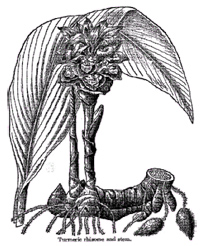The Curcumin Study
 Curcumin to prevent acute kidney injury following CABG or AAA surgery
Curcumin to prevent acute kidney injury following CABG or AAA surgery
Curcumin is a compound found in a spice called turmeric (sometimes spelled tumeric), which comes from the plant Curcuma longa,
a member of the ginger family. Today, it is used most often as an ingredient in curry, and yellow food colouring in North America.
However, it has been used for thousands of years in traditional Chinese and Indian medicine for numerous different illnesses.
Traditionally, curcumin has been used in reducing inflammation. It is a registered natural health product in Canada.
Laboratory and animal studies have suggested that curcumin may have anti-tumor, anti-oxidant, anti-inflammatory, and anti-arthritic
properties. Curcumin has been shown to be beneficial in inflammatory conditions, some cancers, and Type 2 Diabetes Mellitus.
A number of research studies are underway, examining the effect of curcumin on human diseases including Crohn’s disease, pancreatic
cancer, colon cancer, psoriasis, and Alzheimer's disease. There is strong evidence to suggest that curcumin may be able to protect the
kidneys. One study on people who were receiving kidney transplants showed that patients who received curcumin had significantly
improved kidney function compared to patients who did not receive curcumin.
Curcumin has been shown to be very safe. Studies have shown that doses up to 8000mg/day in a four-month trial period were not dangerous
to humans, though some people experienced side effects such as nausea, diarrhea, and yellow stool.
 The anti-inflammatory and anti-oxidant properties of curcumin make it particularly interesting as a substance for preventing acute
kidney injury (AKI)
after cardiac surgery. AKI is a frequent and sometimes serious complication of cardiac surgery resulting from
low blood flow to the kidneys during the procedure, followed by a sudden increase in blood flow at the end of the procedure.
The anti-inflammatory and anti-oxidant properties of curcumin make it particularly interesting as a substance for preventing acute
kidney injury (AKI)
after cardiac surgery. AKI is a frequent and sometimes serious complication of cardiac surgery resulting from
low blood flow to the kidneys during the procedure, followed by a sudden increase in blood flow at the end of the procedure.
Between
5-30% of CABG surgery patients and 5-20% of AAA surgery patients develop some form of kidney injury following surgery. This can result
in longer hospital stays, infections, a need for dialysis, and chronic kidney disease.
.
Login